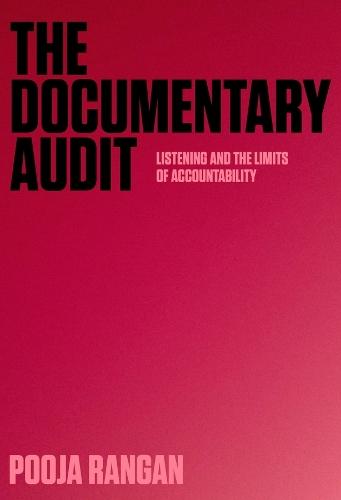Overview
Documentary films are often celebrated with aural metaphors: they give ""voice"" to the ""voiceless"" and ask the public to ""listen."" But when did listening become synonymous with social justice? How exactly do documentaries train audiences to listen when they ask them to right historic wrongs or hold power to account? The Documentary Audit challenges the association of listening with accountability and charts oppositional modes of listening otherwise. Pooja Rangan develops a framework for understanding how documentary practices have, under the mantle of accountability, provided a moral cover for listening habits that are used to profile, exclude, and incarcerate. From the British Crown's promotional films to Zoom meeting recordings, from disability-informed filmmaking in Japan to forensic efforts to expose anti-Palestinian violence in Hebron, Rangan explores how historical and contemporary practitioners have challenged and refused the lures of normative documentary listening habits in order to listen with an accent, listen in crip time, and listen like an abolitionist. Through an interdisciplinary approach that bridges documentary and sound studies while considering raciolinguistics, disability access, and legal forensics, Rangan demonstrates how the question of listening is central to the study of documentary. Far from being a neutral ethic, The Documentary Audit shows, listening creates the reality it purports to verify-with transformative political possibilities.
Full Product Details
Author: Pooja Rangan
Publisher: Columbia University Press
Imprint: Columbia University Press
ISBN: 9780231217972
ISBN 10: 0231217978
Pages: 280
Publication Date: 08 July 2025
Audience:
Professional and scholarly
,
Professional & Vocational
Format: Hardback
Publisher's Status: Active
Availability: Out of stock

The supplier is temporarily out of stock of this item. It will be ordered for you on backorder and shipped when it becomes available.
Reviews
Understanding the act of listening in literal and metaphorical senses, The Documentary Audit consolidates Pooja Rangan’s position as a leading scholar of documentary media. Rangan moves across a diverse array of historical and contemporary materials to elaborate a new conceptual vocabulary—one that unsettles received ideas, asks hard questions concerning documentary’s political aspirations, and is sure to prove influential. -- Erika Balsom, reader in film and media studies, King’s College London The Documentary Audit challenges readers in the best possible way to approach documentary with care, attentive to its competing claims and to the industry forces that contain and constrain it. In this impressive work, Rangan proposes that with a deeper engagement and the practice of “otherwise listening,"" documentary can ultimately succeed in modeling new listening practices that might just begin to reach the radical proposition of documentary to lead to real change. But first we must all learn how to listen better. -- Alisa Lebow, creator of <i>Filming Revolution</i> Listening with care to how voices sound, and paying close attention to how they are produced, has preoccupied me for the last 25 years—but on every page of The Documentary Audit there is a lightning-bulb moment where I am shocked, outraged—and reinvigorated. Rangan is the kind of intellectual and activist who will bring voice, sound, and documentary studies into the critical space Trinh T. Minh-ha has long urged us to hear. -- Nina Sun Eidsheim, author of <i>The Race of Sound: Listening, Timbre, and Vocality in African American Music</i>
Author Information
Pooja Rangan is professor of English in film and media studies at Amherst College. She is the author of Immediations: The Humanitarian Impulse in Documentary (2017) and coeditor of Thinking with an Accent: Toward a New Object, Method, and Practice (2023).




